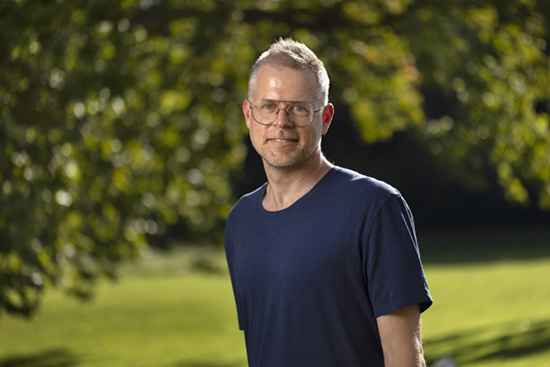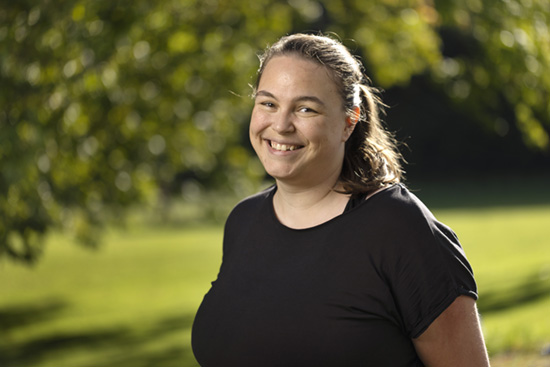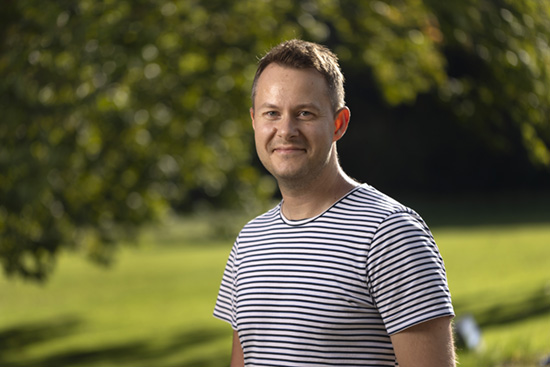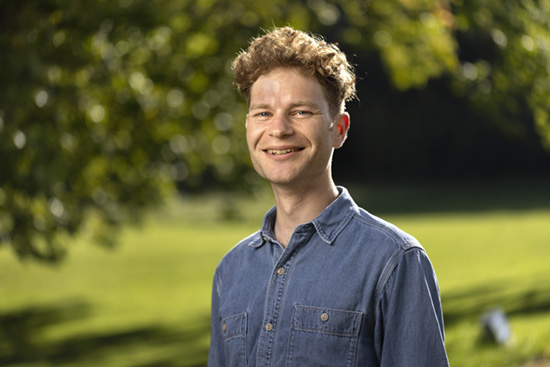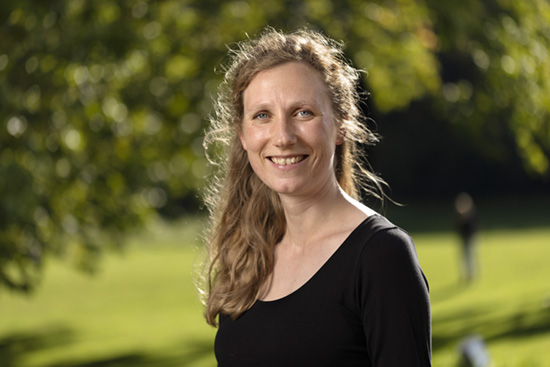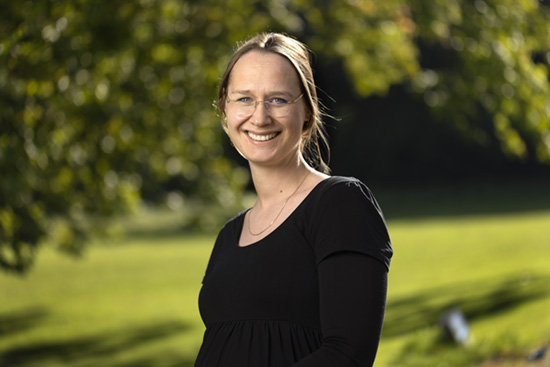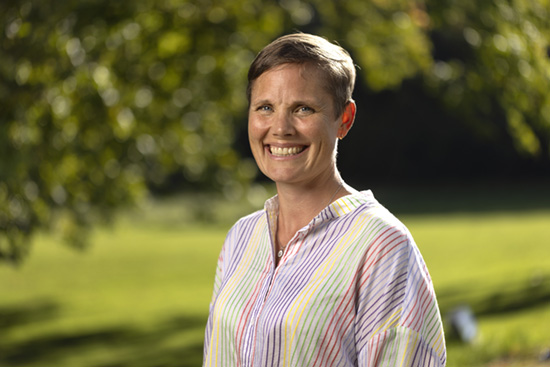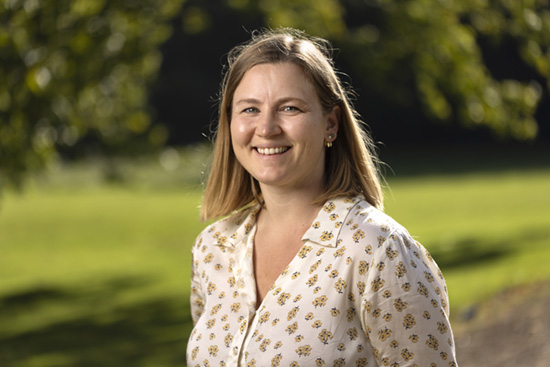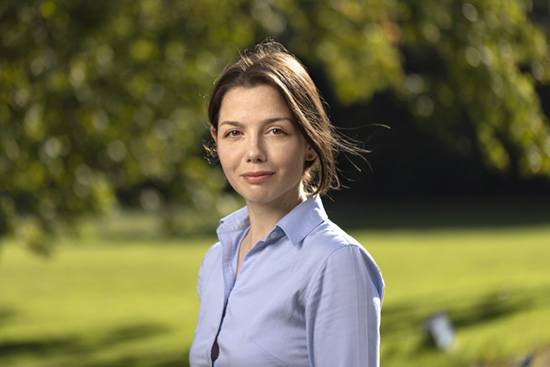Fellow 2023-2025
MD, PhD
Department of Immunology and Microbiology (ISIM)
2023-2025 fellows
Below you will find information about fellows from the 2023-2025 cohort, including their names, background, affiliations, project description, and mentor teams.
Fellows 2023-2025
Project description and mentor team
PSODEEP The Study of Koebner and Deep Koebner in Psoriasis
Psoriasis disease affects skin and sometimes also joints and entheses (psoriatic arthritis). From previous
research we know that disease activity varies over time and that non-lesional skin from patients with
psoriasis differ from the skin of healthy controls. In order to assess the risk for psoriasis development in
non-lesional skin and to identify biomarkers associated with this risk it is necessary to study skin just as
psoriasis develops. This can be done taking use of the Koebner phenomena which is the development of
psoriasis secondary to skin injury. Experimentally, Koebner can be triggered by tape-stripping (attaching
and removing tape from the skin repetitively). Koebner reactivity is also proposed to be associated with the
development of psoriatic arthritis. Investigating this association could provide clinicians a tool to identify
patients at risk of arthritis development.
Mentors
Basic mentor: Professor Liv Eidsmo, Translational Skin Immunology Laboratory, Skin Immunology Research Centre, Dept. of Immunology and Microbiology, University of Copenhagen
Clinical mentor: Associate Professor Beatrice Dyring-Andersen, Physician and Group Leader, Department of Dermatology and Allergy, University Hospital Herlev and Gentofte
Supplementary mentor: Professor Mads Gyrd-Hansen, Skin Immunology Research Center, Department of Immunology and Microbiology, University of Copenhagen
Project description and mentor team
Improving interpretation and translation in genebased precision medicine in diabetes
Some types of diabetes are caused by differences in the genetic makeup called genetic variants. It is
important for doctors and people with diabetes to know whether diabetes is caused by a genetic variant
because it may mean that the person with diabetes needs a specific treatment. However, finding out
whether a genetic variant is the cause of diabetes is no small task, and genetic variants seem to impact
people differently. Research indicates that this could be caused by individual differences in the entire
genetic makeup. This study will use information collected from groups of patients with diabetes and the
general population to investigate how individual genetic variants are affected by the rest of the genetic
makeup. It will further investigate whether the genetic risk of disease is reflected in the functional readout
of the genetic makeup, and whether this readout can be used to infer the impact of an individual variant.
Ultimately, this serves to improve the way that researchers and clinicians understand genetic variation and
put it to clinical use.
Clinical mentor: Dr. Jørgen Rungby, Steno Diabetes Center Copenhagen
Supplementary mentor: Dr. Marit Eika Jørgensen, Steno Diabetes Center Greenland
Project description and mentor team
Deeper understanding of the gut-brain axis interactions during chronic inflammation: a focus on barrier integrities
Chronic inflammation is a common denominator of multiple conditions with increasing global prevalence and
unmet medical needs. These include metabolic syndrome, inflammatory bowel diseases and neurological
diseases. When compromised, the gut barrier, which protects us against potential harmful bacteria, contributes
to chronic inflammation. The objectives of this proposal are to 1) characterize the complex dynamics between
commensal microbes, host immunity and inter-organ crosstalk with focus on both gut and blood-brain barrier
integrity and 2) to evaluate the effect of a prominent drug candidate on these targets. A combination of clinical
trials, allowing us to postulate human-based hypothesis and pre-clinical models, allowing us to detangle the
mechanism at play make this translational project of high relevance for understanding and finding a cure for
chronic inflammatory diseases.
Clinical mentor: Clinical Professor Filip. K. Knop, Center for Clinical Metabolic Research, Gentofte Hospital, University of Copenhagen Department of Clinical Medicine, Faculty of Health and Medical Sciences, University of Copenhagen
Project description and mentor team
Revealing why constitutional thinness protects against obesity
Our modern world is full of extremely tasty and very tempting calorie-dense foods. This fattening environment
drives obesity and metabolic diseases for which only few preventive strategies and therapeutic options exist.
Yet, while millions of people struggle to stay slim, a small and neglected group of persistently thin individuals
experience the complete opposite problem. Whenever they “force-feed” themselves, their bodies fight back in
powerful ways we do not understand. This inborn resistance to obesity represents a mysterious physiological
phenomenon and is a key feature of their so-called “constitutional thinness”. By investigating how overfeeding
affects appetite and heat production, but also hormonal and molecular pathways in blood and fat, we aim to
discover what protects these individuals from gaining body weight. This project will not only help counteract
weight stigmatization, but could also lead to much more effective ways of fighting the escalating obesity
epidemic.
Basic mentor: Associate Professor Christoffer Clemmensen, Novo Nordisk Foundation Center for Basic Metabolic Research (CBMR), University of Copenhagen
Clinical mentor: Dr. Tina Vilsbøll, Steno Diabetes Center Copenhagen (SDCC)
Supplementary mentor: Associate Professor Zachary Gerhart-Hines, CBMR and Chief Scientific Officer Embark Biotech
Supplementary mentor: Dr. Nadia Micali, Head of Research, Unit of Eating Disorders at Psychiatric Center Ballerup
Project description and mentor team
Cardiometabolic risk factor trajectories in dementia
Dementia is a major cause of disability in the elderly and there are no cures available so far. To combat dementia, exploration of new causal risk factors facilitating new medical strategies is therefore of paramount importance. Up to 40% of dementia is anticipated to be preventable by modifying 12 risk factors throughout the life course, including several cardiometabolic risk factors. These risk factors may however have different impact on dementia at midlife and late-life. This project aims to disentangle the role of cardiometabolic risk factor trajectories throughout the life course in modulating risk of dementia. The causal trajectories discovered in this project will help us to pinpoint the known drugs, for example those already used in cardiovascular disease, that may also help to prevent dementia. Of equal importance is that our discoveries will help to optimize the selection of participants that are likely to benefit the most from the treatments in clinical trials of new drugs.
Mentors
Basic mentor: Professor Ruth Loos, Novo Nordisk Foundation Center for Basic Metabolic Research, Faculty of Health and Medical Sciences, University of Copenhagen
Clinical mentor: Professor Ruth Frikke-Schmidt, Department of Clinical Biochemistry, Copenhagen University Hospital - Rigshospitalet
Industry mentor: Professor Kees Hovingh, Senior Medical Officer, Global Chief Medical Office, Novo Nordisk
Supplementary mentor: Dr. Jesper Qvist Thomassen, Department of Clinical Biochemistry, Copenhagen University Hospital – Rigshospitalet
Project description and mentor team
Why is the peripartum heart a substrate for dilated cardiomyopathy? A data driven investigation of molecular and cellular remodelling
Peripartum cardiomyopathy (PPCM) is a failure of the heart to pump enough blood to meet the requirements
of the body that develops either towards the end of pregnancy or shortly after birth. Its clinical characteristics
are similar to other forms of heart failure, but it is not known how or if PPCM is different at a molecular level.
State of the art experimental and computational methods allow us to measure how different cells change in
both their relative proportions and their gene expression profiles, and to identify how their spatial context
influences this. Through combination of these diverse data types we will delineate the processes by which
other cell types influence the contractile cells of the heart to reduce their function. By comparing PPCM to
healthy controls and other forms of heart failure, we aim to identify molecular mechanisms that may ultimately
lead to new diagnostic strategies and the development of better treatments.
Clinical mentor: Professor Finn Gustafsson, Department of Cardiology, University Hospital - Rigshospitalet
Project description and mentor team
Diagnosing drug induced liver injury
As the liver plays a central role in drug metabolism, many drugs can elicit an unexpected liver toxic
response, which can result in life threatening liver damage. Unfortunately, drug induced liver injury (DILI) is
difficult to diagnose as patients often suffer from underlying diseases and treatment regimes, that may
conceal symptoms. A limited knowledge of the mechanisms that drive unexpected liver injury, effectively
reduces our means to diagnose DILI and in turn provide a correct and timely treatment. To improve and support advancements and help identify and treat DILI patients, this project aims to establish a model system
where DILI is induced in intact isolated liver slices – a small “liver in a dish” - devoid of interfering factors.
In this way, we can learn more about which specific factors are responsible for DILI. To confirm the model
system, findings are compared to DILI patients, paving the road for further investigations of diagnostic and
treatment modalities for DILI.
Mentors
Basic mentor: Professor Jens Lykkesfeldt, Section of Experimental Animal Models, IVH, University of Copenhagen
Clinical mentor: Professor Lise Lotte Gluud, Gastro Unit, Copenhagen University Hospital Hvidovre and Department of Clinical Medicine, University of Copenhagen
Supplementary mentor: Associate professor Pernille Tveden-Nyborg, Department of Veterinary and Animal Sciences, University of Copenhagen
Project description and mentor team
The regulatory role of GLP-2, GIP, and dual GLP-2/GIP receptor agonists on intestinal nutrient absorption and splanchnic blood flow and their therapeutic potential
During a meal, blood flow to the gut increases, ensuring that nutrients are absorbed and transported throughout the body. Gut hormones are also secreted, and of these glucagon-like peptide 2 (GLP-2) and glucose-dependent insulinotropic polypeptide (GIP), may be important regulators of nutrient uptake and blood flow. This project aims to investigate the effects of GLP-2 and GIP and, importantly, the interactions between the two, on nutrient uptake and blood flow. In animal experiments, the mechanistic effects will be determined using state of the art methods (incl. super resolution ultrasound) and newly developed GLP-2 and GIP based compounds. In humans with intestinal insufficiency, GLP-2, GIP, and GLP-2+GIP will be evaluated as therapeutic treatment. Thus, this project will provide new physiological insights, crucial for the future clinical development of therapeutics to treat conditions of intestinal insufficiency, and potentially form the basis for future therapeutic application.
Mentors
Basic mentor: Professor Jens Juul Holst, Scientific Director, Department of Biomedical Sciences, Section of Endocrinology Research, Novo Nordisk Foundation Center for Basic Metabolic Research, University of Copenhagen
Clinical mentor: Professor Palle Bekker Jeppesen, Head of Department, Department of Intestinal Failure and Liver Diseases, Rigshospitalet
Supplementary mentor: Associate Professor Bolette Hartman, CEO & Co-founder of Bainan Biotech, Department of Biomedical Sciences, University of Copenhagen
Supplementary mentor: Associate Professor Charlotte Mehlin Sørensen, Department of Biomedical Sciences, University of Copenhagen
Project description and mentor team
Atrial mechano-electrical coupling in obstructive sleep apnea
Atrial fibrillation is a common cardiac arrhythmia. The majority of patients concomitantly suffer from
obstructive sleep apnea, which attenuates the effect of atrial fibrillation therapy. Therefore, understanding
the mechanisms of atrial fibrillation in relation to obstructive apnea will improve future patient care.
During obstructive apnea, the upper airways collapse, while respiratory movements continue. This causes
fluctuations in the thoracic pressure, ultimately stretching the heart, in particular the thin-walled atria.
Stretching the musculature is known to alter cardiac electrical activity. This is termed the mechanoelectrical
coupling. However, it is unknown how obstructive apnea stretches the atria and whether it
impacts atrial fibrillation. This study examines the atrial electrical activity and stretch in large animals and
patients during obstructive apnea events. Our results will facilitate treatment for patients with atrial
fibrillation and obstructive sleep apnea.
Clinical mentor: Professor Poul J. Jennum, Consultant neurologist, Danish Center for Sleep Medicine,
Department of Clinical Neurophysiology, Rigshospitalet-Glostrup Hospital, University of Copenhagen
Project description and mentor team
Development of new pre-implantation models and media for IVF
There is a strong need to have a better understanding of how cells make choices in the early human
embryo. Within the first six days from fertilisation to blastocyst, the embryo develops from a single
fertilised egg-cell into hundreds of cells that have begun differentiation into specific cell lines. Couples
with the need for fertility treatment are dependent on fertilisation and early embryo development in the
IVF laboratory and therefore dependent on optimal growth conditions from embryo culture media. The
IVF-media used in fertility clinics are all based on media used to culture animal embryos, with a range of
significant differences from human embryos. With this project we plan to change this premise in three
steps:
1) Develop and in silico model for early human development using surplus embryos from IVF. We
will use the embryo-derived data to construct a regulatory gene network of early human
development.
2) Using donated abnormal human embryos we will test what frequently goes wrong during
development. These so called bottlenecks could be efficiently targeted during therapy.
3) Finally we will test the possible use of two candidate molecules during IVF treatment.
We expect this model will help generate a better IVF-media and therefore increase embryo quality,
ultimately enabling higher IVF success rates.
Copenhagen University Hospital, Hvidovre, Deptartment of Clinical Medicine, University of Copenhagen
Supplementary mentor: Associate Professor Nina La Cour Freiesleben, Department of Obstetrics and Gynecology,
Copenhagen University Hospital, Hvidovre, Deptartment of Clinical Medicine, University of Copenhagen
Project description and mentor team
Impact of psychological resilience on major depressive disorder
The BRIDGE projects aim to study resilience to depressive disorder. Instead of looking at what makes people more likely to get sick, the project aims to study what makes people more resilient to getting sick. With this project we hope to identify genetic, social, and biological factors that contribute to psychological resilience and to clarify if and how psychological resilience impacts the risk of developing depressive disorder in individuals with an increased depression risk due to genetic or environmental exposures. The potential impact of this project will be to gain new insights that can help us better understand what factors stops depressive disorder from developing and thereby inform about new relevant strategies for preventing and treating the disorder.
Mentors
Basic mentor: Assistant Professor Freja Herborg, Department of Neuroscience, University of Copenhagen
Clinical mentor: Clinical Professor Sisse R. Ostrowski, Department of Clinical Immunology, Diagnostic Center, Rigshospitalet and Department of Clinical Medicine, University of Copenhagen
Supplementary mentor: Clinical Professor Thomas Werge, Department of Clinical Medicine, University of Copenhagen, Head of the Research Institute for Biological Psychiatry, PC Sct. His.
Supplementary mentor: Associate Professor Andrew J. Schork, Research manager, Capital Region Psychiatry, Psychiatric Center Sct. His,
Mie Balling
Fellow 2023-2025
MD, PhD
Department of Public Health (IFSV)
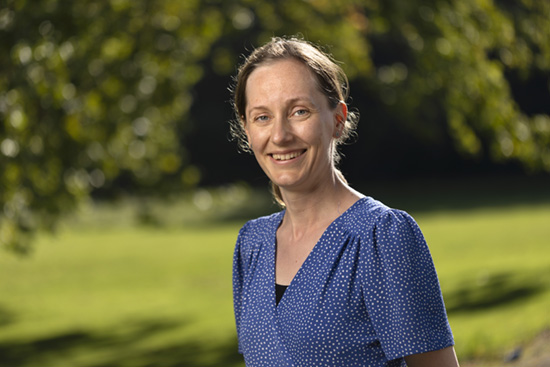
Project description and mentor team
Metabolomic lipoprotein profiling and repeated lipid measurements in statin treated patients: obtaining better risk prediction in atherosclerotic cardiovascular disease
Aims: The first aim is to look at whether specific sizes or compositions of fat-containing particles in the
blood stream are especially harmful in the development of cardiovascular disease among patients taking
statins. The second aim is to look at changes in all dangerous fat-containing particles compared to
currently used “bad” cholesterol marker, low-density lipoprotein (LDL) cholesterol, in patients taking
statins.
Scientific rationale: Substantial risk of cardiovascular disease remains after treating traditional risk
factors including LDL cholesterol. Detailed measurements of fat particles and repeated measurements of
fat particles and their lipid contents could yield new risk factors associated with cardiovascular disease
among those treated with statins.
Potential impact: This project is not only new but also timely and may be of importance to future
guidelines on treatment of cholesterol from fat-containing particles and contribute to identify new
treatment goals.
Industry mentor: Dr. Anette Varbo, Obesity, Medical & Science, Novo Nordisk Research affiliated with Department of Clinical Biochemistry, Herlev and Gentofte Hospital
Project description and mentor team
Disruption of the neurobiological body-weight defense system in childhood-onset obesity
This project aims to investigate the neurobiological mechanisms of treatment-resistant obesity and the
potential impact of PFAS exposure. The study will use state-of-the-art MRI to investigate variations in
brain activity related to appetite, cognitive restraint, and reward in young adults with childhood-onset
obesity who exhibit excellent, partial, or no response to a hospital-based lifestyle intervention. The study
will also examine the impact of a new appetite-regulating compound, semaglutide, on appetite-specific
brain activity in youth with childhood-onset obesity. Finally, the study will investigate whether plasma
levels of PFAS are linked to treatment resistance in youth with obesity. The results of this study could have
significant implications for public health, leading to improved prevention and treatment outcomes for
millions of people with obesity.
Clinical mentor: Clinical Professor Gitte Moos Knudsen, Neurobiology Research Unit, NeuroPharm and BrainDrugs
Dept of Neurology, The Neuroscience Center, Rigshospitalet
Project description and mentor team
Basic research translated into a novel principle of antifungal drugs with a promising effect in mice
Fungal infections cause more than a million deaths globally each year and patients with weakened immune
systems are especially susceptible to infection. The fungus Aspergillus fumigatus is one of the most
common pathogenic fungi. Unfortunately, drug resistance is emerging, and the currently available
antifungals cause serious side effects. Hence, there is an urgent need to develop new therapeutics.
The project aims to transfer a new therapeutic approach against aspergillosis from the bench to the bedside.
The approach uses a protein with an antibody look-alike structure built by components from the human
immune system. The antibody look-alike protein binds to A. fumigatus and mediates recognition and
clearance of the fungal infection. A pilot mouse study showed a promising therapeutic effect against A.
fumigatus. The project will investigate the therapeutic potential of this new antifungal in pre-clinical ex vivo
human and in vivo mouse models and make improvements of the compound.
Clinical mentor: Professor Maiken Cavling Arendrup, Department of Clinical Microbiology, Copenhagen University Hospital, Head of the Mycology Unit, Statens Serum Institute, Copenhagen
Industry mentor: Associate Professor Mikkel-Ole Skjødt Scientific Director at Novo Nordisk, Rare Disease Research,
Institute of Immunology & Microbiology, University of Copenhagen
Supplementary mentor: Dr. Anne Rosbjerg, Senior Researcher at the Dept. of Clinical
Immunology, Copenhagen University Hospital
Project description and mentor team
Immune checkpoints in periprosthetic joint infection
Infection following joint replacement surgery (periprosthetic joint infection, PJI) is difficult to treat as
bacteria can form a protective layer known as biofilm in tissue and on implants, making surgical and
antibiotic therapy more likely to fail. The local environment of some infections has similarities to that of
tumours, including suppression of the body’s immune response and upregulation of immune checkpoints
(ICs). ICs prevent excessive and potentially harmful immune responses, but can when overly engaged,
reduce the body’s ability to clear infection. This evidence and the success of inhibiting ICs in cancer therapy
to enhance the immune response, suggests that it may be useful for treating PJI. This project aims to explore
the local environment of PJIs focussing on ICs, determine if ICs could be used as disease markers and
treatment targets, and if inhibiting ICs is an effective treatment in an animal model. Collectively, this project
may form the foundation for exploring ICs as new treatment targets for PJI.
Clinical mentor: Professor Anders Odgaard, Deptartment of Orthopaedic Surgery, Rigshospitalet – Copenhagen
University Hospital, Department of Clinical Medicine, University of Copenhagen
Supplementary mentor: Senior Researcher Anders Elias Hansen, Department of Health Technology, Technical University of Denmark
Industry mentor: Dr. Lars Ringgaard Petersen, Medical advisor, Medical affairs, AstraZeneca

